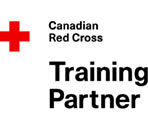COURSE DETAILS
Duration: 40 hours (taught in
non-urban setting) with optional overnight camps
Cost: $449 + HST
The WFR course is the gold standard for individuals who work as part of a formal rescue and response system, typically having a duty to act as a member of a team; rescuers who specialize in decision-making, extrication, and transport in challenging environments with varied terrain and risk levels.
With a focus on extrication and rescue decision-making, the WFR is tailored to the team approach engaging in a targeted rescue. Through use of professional tool kit and resources, the scenarios involve urgent evacuation and consideration extended care (5+ days) in environments where survival may be compromised.
Intended for rescuers who specialize in decision-making, evacuation, and transport in a remote or wilderness setting. Suitable for those who work in remote emergency services, remote worksites, ski patrol, search and rescue, etc.
PLEASE NOTE: This is a RECERTIFICATION course. We require proof of your Red Cross certification to register for this course. Your registered course date must be *within* the 3-year expiry noted on your certification. Transfers from training agencies other than the Red Cross are not accepted. If you are looking for the full 80 hour WFR course, it is available here.
Completion Requirements:
100% attendance, skills demonstration, and 75% min. passing grade on written quiz
Certification:
3-year recertification in Wilderness First Responder
Course Content:
- Planning
- Responding to the call
- Infection prevention and control
- Anatomy and physiology
- Scene assessment
- Primary assessment
- Secondary assessment
- Ongoing Assessment
- Airway management and respiratory emergencies
- Circulatory emergencies
- Cardiopulmonary resuscitation (CPR)
- Shock
- Hemorrhage and Soft Tissue Trauma
- Musculoskeletal Injuries
- Chest, Abdominal, and Pelvic Injuries
- Head and Spinal Injuries
- Acute and Chronic Illnesses
- Poisoning
- Wildlife
- Environmental illnesses
- Pregnancy, Labour, and Delivery
- Special populations
- Mental and emotional health and wellness
- Reaching, lifting, and extricating patients
- Extended care
- Transportation
- Arranging transfer
- Multiple-casualty incidents
- Pharmacology
- Workplace considerations
- Occupational health and safety
- Practice and scenarios
Optional Overnight Camps
Supplementary Content:
- customizable / to be determined
